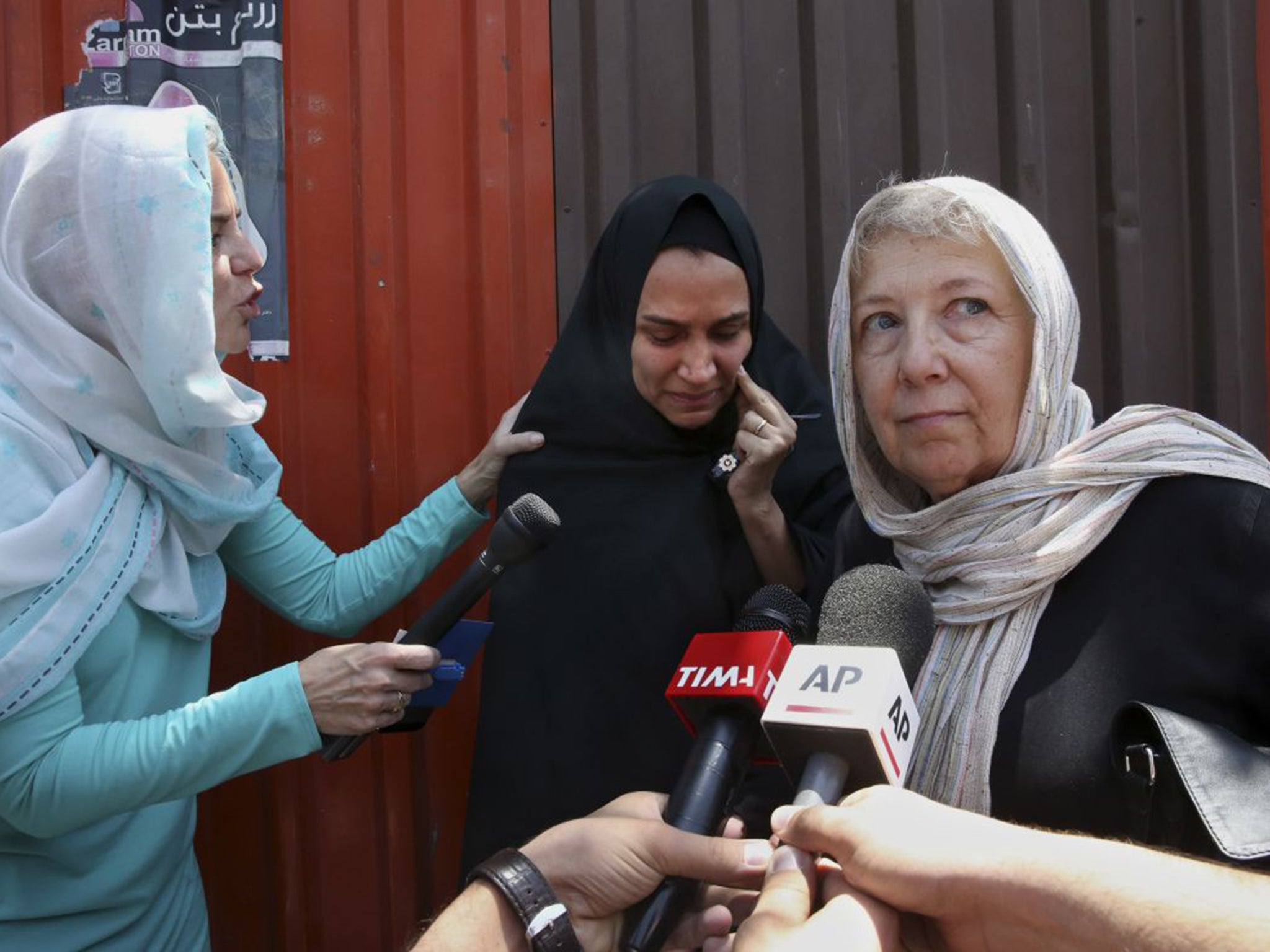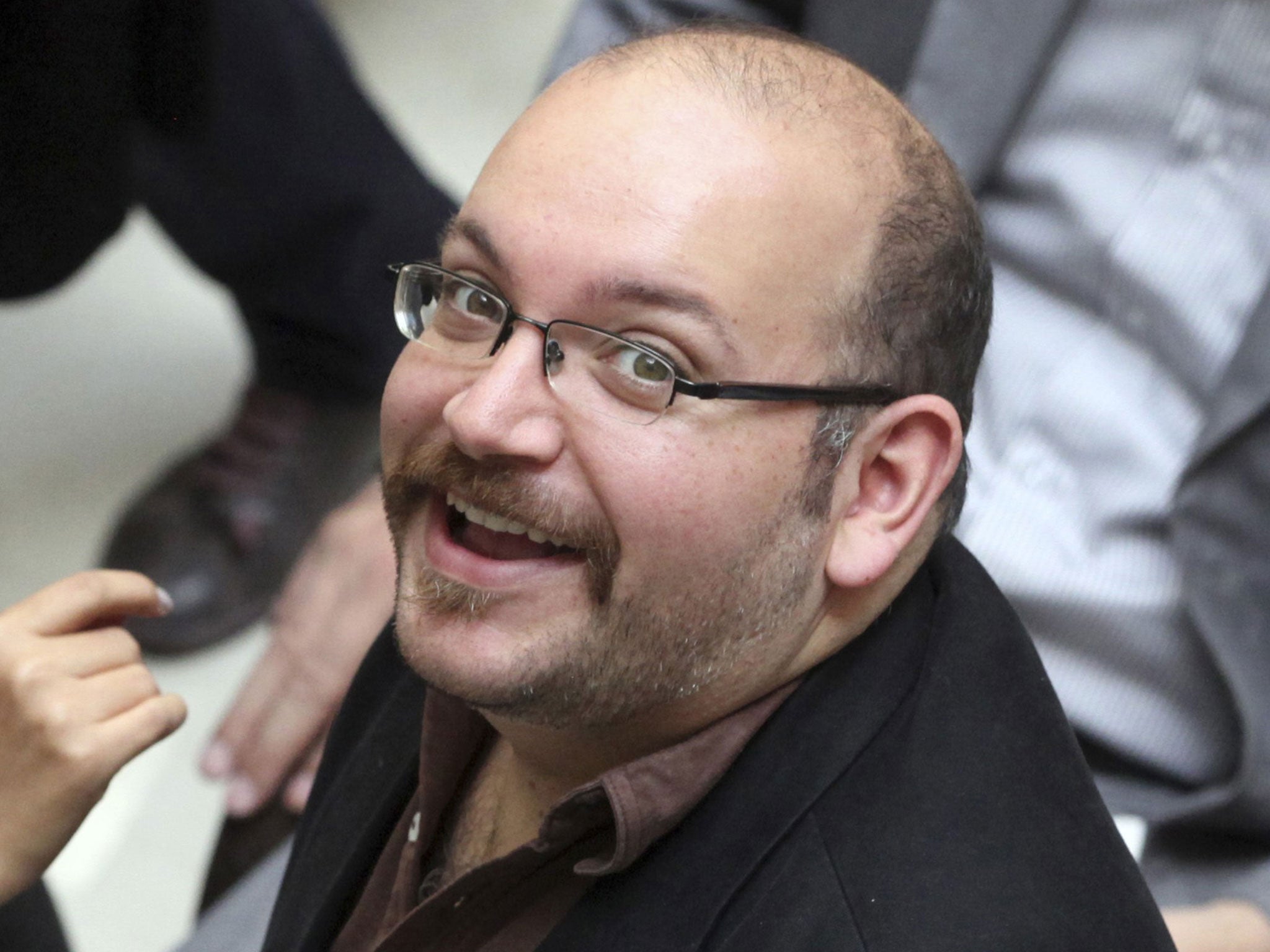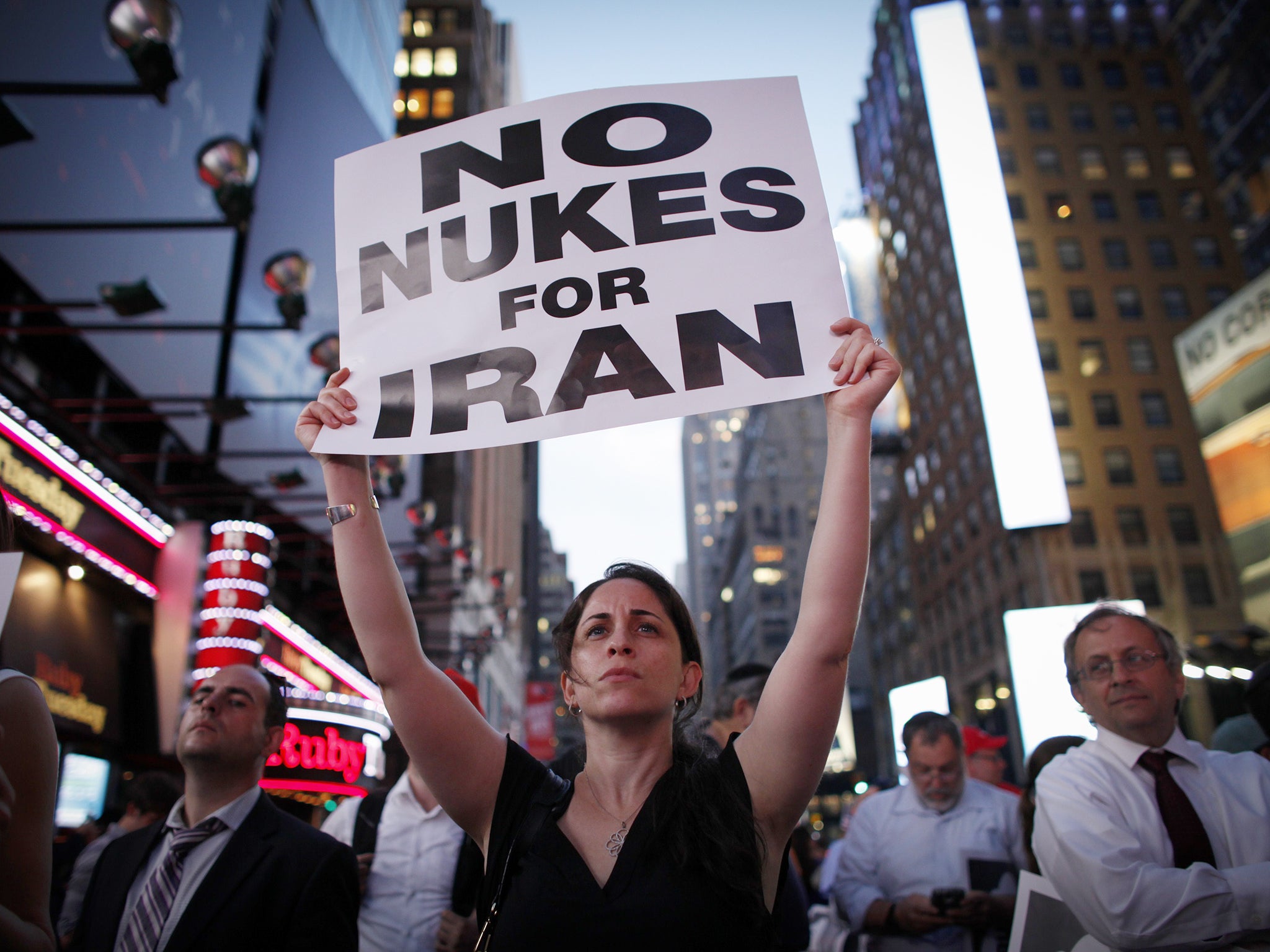It's too soon to put trust in Tehran - while Jason Rezaian and others languish in Iranian jails
Out of America: Historic nuclear talks between Iran and the US failed to lead to the release of a jailed 'Washington Post' correspondent


Your support helps us to tell the story
From reproductive rights to climate change to Big Tech, The Independent is on the ground when the story is developing. Whether it's investigating the financials of Elon Musk's pro-Trump PAC or producing our latest documentary, 'The A Word', which shines a light on the American women fighting for reproductive rights, we know how important it is to parse out the facts from the messaging.
At such a critical moment in US history, we need reporters on the ground. Your donation allows us to keep sending journalists to speak to both sides of the story.
The Independent is trusted by Americans across the entire political spectrum. And unlike many other quality news outlets, we choose not to lock Americans out of our reporting and analysis with paywalls. We believe quality journalism should be available to everyone, paid for by those who can afford it.
Your support makes all the difference.You may not have heard of Jason Rezaian, but he is the Tehran correspondent of The Washington Post. More importantly, he is one of four Americans currently imprisoned in Iran. The son of an Iranian father and holder of dual citizenship, he faces charges of espionage, of “collaborating with foreign governments” and of producing “propaganda against the establishment”. The accusations are patently trumped up – except in the eyes of Iran’s paranoid security apparatus which sees reporters, and Iranian-American reporters in particular, as tools of the “Great Satan” in the latter’s campaign to bring down the Islamic Republic.
For a year now. Rezaian has been languishing in Tehran’s infamous Evin prison. You might have thought that, as a gesture of good faith during the negotiations this month that produced the potentially historic deal curbing Iran’s nuclear ambitions in return for a lifting of sanctions, the regime might have wrapped up his trial and released him. But not so. Instead, the gloomy anniversary coincided with the appearance of Secretary of State John Kerry before Congress last week, in which he defended the controversial agreement. Inevitably, the two issues have grown ever more entwined.

The Post plainly believes the Obama administration hasn’t done enough to secure Rezaian’s freedom, and is now petitioning the United Nations to step in. To which the White House would plead raison d’état – that you don’t let the fate of a few individuals get in the way of a deal that is in the national interest and which could defang Iran and thus transform the Middle East.
But wasn’t the best chance of getting Rezaian out of Evin prison while the negotiations were in progress? Nonsense, Obama in effect told a White House press conference to promote the agreement, for once losing his habitual cool. “You should know better,” he scolded a reporter who dared to broach the subject of the four imprisoned Americans.
Since then, despite every White House effort to sell the deal, the debate over its merits has only intensified. Usually, Americans follow their President on foreign policy, but not this time. According to the polls, a clear majority of them oppose the accord. Thus emboldened, the Republicans, who control both chambers of Congress, oppose it to a man. At the Senate foreign relations committee (which only three years ago he chaired), Kerry was told he had been “bamboozled” and that the President had succumbed to serial cheaters to secure an agreement that would guarantee his legacy.
Kerry seemed astonished by the Republicans’ sheer virulence. The deal wasn’t perfect, he insisted, but it was the best that could realistically be hoped for; anyone who believed that a better one was possible – one perforce involving Iran’s complete capitulation – was living in cloud cuckoo land. And he’s surely right.
The touted alternative, a continuation of the sanctions that for years Iran has proved it can withstand, would all but certainly have Tehran accelerating its quest for nuclear weapons. That would leave military action against the country’s nuclear sites as the only option: in other words, a new war in the Middle East, which few Americans want. It is a sobering fact that many of the people now denouncing the agreement with Iran were the most ardent cheerleaders for the disastrous Iraq war that contributed so much to Iran’s recent advances in the region.
But Rezaian’s brutal treatment doesn’t bode well for hopes that an economically stronger Tehran will resist the temptation to use the vast sum of money once frozen by sanctions (an estimated $50bn) to cause more mischief around the Middle East. A nuclear deal is one thing, the country is saying, but the rest is our business. Iran will not be kicked around.
In the meantime, the murky waters of Iranian domestic politics have bred a thousand theories for Rezaian’s continuing ordeal. Most point to the division of authority between a government led by the reformist and relatively moderate President Hassan Rouhani and the hardline clerics who hold supreme power. The journalist is being tried in the Revolutionary Court system that handles national security cases, answerable not to the government but to the clerics. Is their stance a signal to the outside world, or to Rouhani, whose popularity, if the deal brings a rapprochement with the West, might one day threaten their own authority? Or is it both?

As matters stand, even a Congressional rejection won’t derail the agreement, unless Republicans can round up in both House and Senate the two-thirds majority required to override the veto that Obama has promised. Even so, a “no” from Congress would send a terrible signal about America’s longer-term commitment to the deal – especially if Republicans were to win the White House in 2016.
What is beyond doubt is the appalling treatment of Rezaian. He has been detained longer than any journalist since the 1979 revolution. He was held in solitary confinement for months, denied a mattress, medicine and a toilet, as well as his basic legal rights. The “trial” – of which there have been three sessions thus far – has been held in secret. Rezaian’s lawyer cannot talk to relatives about what is happening. The case, said Marty Baron, editor of the Post, has been “a disgraceful violation of human rights and a violation of common decency”.
Word now is that the next court session, the fourth, could be the last. But whether that is good or bad news for Rezaian is anyone’s guess. He could be given a long jail term; he could be convicted but sentenced merely to time served and released. Least likely is unconditional acquittal, tantamount to an admission the whole thing has been a mockery of justice.
Ronald Reagan’s watchword in his dealings with the Soviet Union was “trust but verify”. The hard-headed lesson of the nuclear pact with Iran and the plight of Jason Rezaian can only be “verify but don’t trust”.
Join our commenting forum
Join thought-provoking conversations, follow other Independent readers and see their replies
Comments